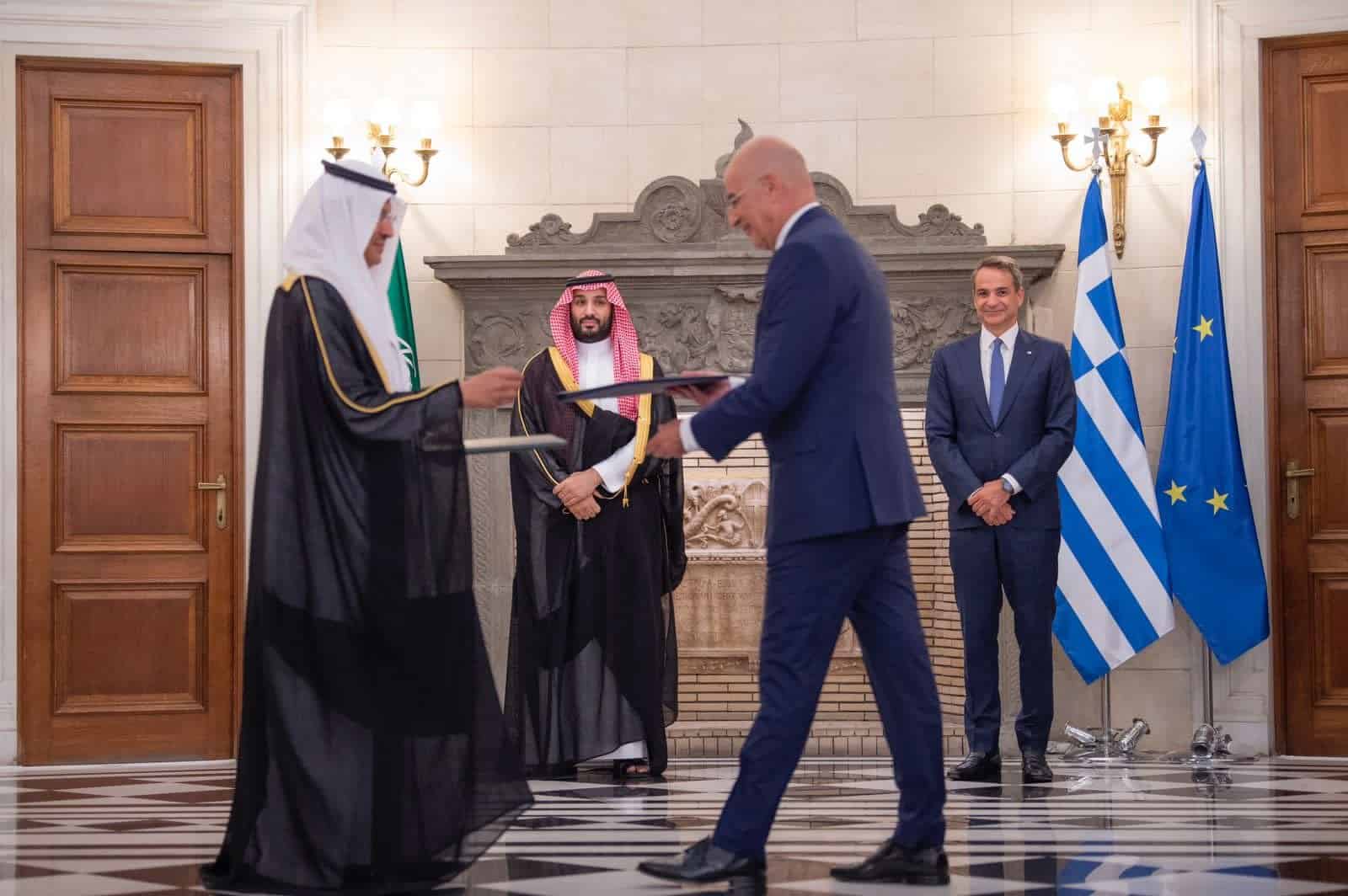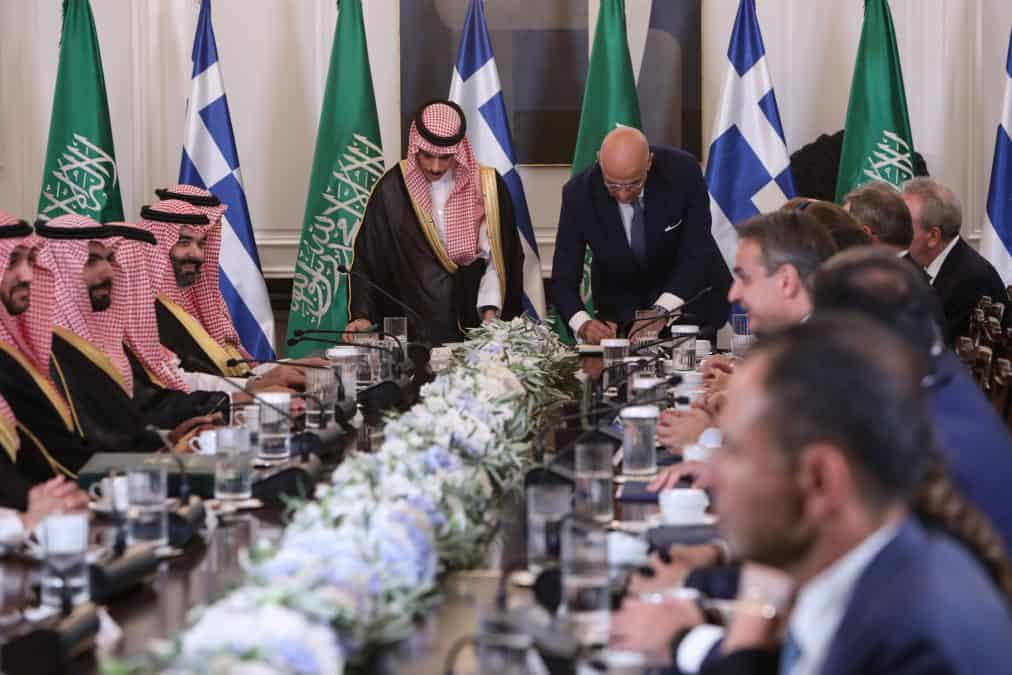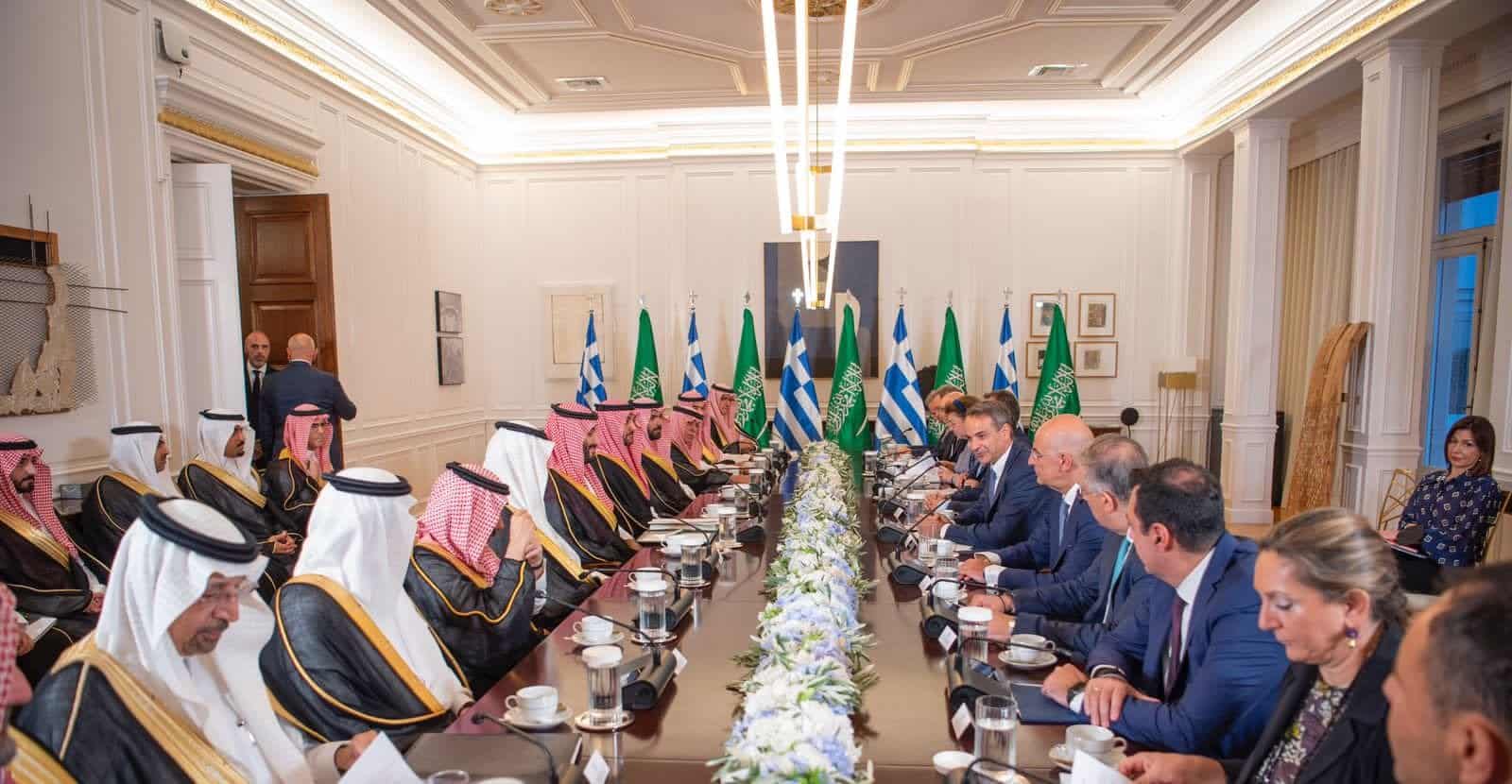Saudi Crown Prince Mohammed bin Salman announced upcoming bilateral projects on a visit to Greece late Tuesday, including for a power cable between both countries to provide Europe with “cheaper renewable energy”.
“I believe we have… historical opportunities, that we are going to finalise a lot of it today,” Prince Mohammed bin Salman said during a press conference with Prime Minister Kyriakos Mitsotakis in Athens.
This would include linking electricity grids to “provide Greece and southwest Europe through Greece with… much cheaper renewable energy,” said Saudi Crown Prince, who landed in Greece on Tuesday.
The Greek foreign ministry said agreements on maritime transport, energy and defence technology among other things were due to be signed on Wednesday.
Energy sector in focus

Saudi Energy Minister Prince Abdulaziz bin Salman and Greek Foreign Minister Nikos Dendias signed an MoU for cooperation in several areas related to energy sector.
Late on Tuesday, the Kingdom’s Energy Minister Prince Abdulaziz bin Salman bin Abdulaziz and Greek Foreign Minister Nikos Dendias signed a memorandum of understanding for cooperation in several areas related to the energy sector.
The memorandum sets a framework for cooperation between the two friendly countries that includes the fields of renewable energy, electrical interconnection, exporting electricity to Greece and Europe, clean hydrogen and its transfer to Europe, energy efficiency, the oil, gas and petrochemical industry, and adopting the circular economy approach to carbon and technologies to reduce the effects of climate change, such as capturing Carbon, reuse, transport and storage, capture carbon directly from the air.
The memorandum also includes cooperation in the field of promoting digital transformation and innovation in the fields of energy, including cyber security, and working to develop qualitative partnerships between the two parties to localize materials, products and services related to all energy sectors and their associated supply chains and technologies.
Within the framework of this memorandum, joint research in the fields of energy with universities, research centers and others will be conducted, and working sessions, panel discussions, seminars, and multilateral conferences will be organized, in addition to building human capacities through training, and exchanging experiences and information related to various energy fields.
Private firms join hands

A strategic partnership was also announced between the private sectors in the two countries to build a data cable project linking the East and the West, in a way that would ensure the smooth digital supply of data worldwide at a time when the world is witnessing a growth of data traffic by more than 30 percent.
This partnership comes through leading the (EMC) project by the Saudi Telecom Company (STC) in partnership with the Greek Telecom Company; the General Energy Company in Greece and the Cyprus Telecom Company, as the agreements were exchanged during the visit of Crown Prince Mohammed bin Salman to the Republic of Greece, which will contribute to strengthening the Kingdom’s position as a regional digital hub center in line with the goals of the Kingdom’s Vision 2030, and as Greece is the eastern data gateway to the European Union.
The project aims to position the two countries as an eastern digital station for Europe to reach the Middle East, the continents of Africa and Asia, and the submarine cable (EMC) comes as part of the strategic digital transformation plan of Greece, and is part of the Kingdom’s ambitions to consolidate its position as a digital hub center at the regional and global levels by taking advantage of its advanced digital infrastructure, and its developed cadres and institutions, in addition to its geographical location, which allows it to become a global digital hub center by linking East and West.
The project, if completed, will also contribute to accelerating the growth of the global digital economy, which is estimated to reach US$ 15 trillion, in addition to supporting new industries and emerging markets based on innovative business models.
(With agency inputs)

